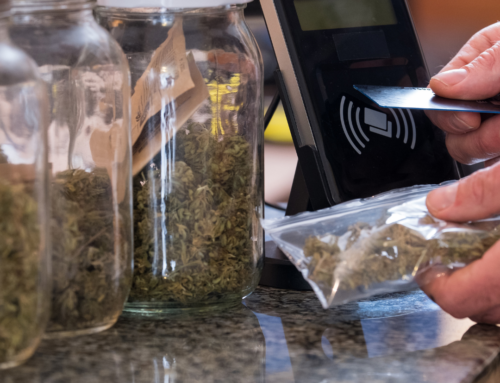Knowing when to seek help is hard for everyone, and it can be even more difficult to actually ask for help. For celebrities, they face the additional challenge of prioritizing self-care and facing their struggles under the public’s watchful eye.
Actor Kit Harington, famously known for his role as Jon Snow on Game of Thrones, revealed recently that after wrapping up filming of the popular series he checked himself into a wellness program.

A representative for the actor stated publicly that “Kit has decided to utilize this break in his schedule as an opportunity to spend some time at a wellness retreat to work on some personal issues,”
What’s remarkable about this news story isn’t only that he chose to be pro-active and prioritize his physical and mental wellbeing, but that the actor has spoken so openly about his struggles even while filming the decade-long show:
“I felt I had to feel that I was the most fortunate person in the world when actually, I felt very vulnerable. I had a shaky time in my life .. like I think a lot of people do in their 20s. That was a time when I started therapy and started talking to people. I had felt very unsafe, and I wasn’t talking to anyone. I had to feel very grateful for what I have, but I felt incredibly concerned about whether I could even act.” ~ Kit Harington, Actor
What is also noteworthy about Kit Harington’s revelation is the fact that, according to reports, he sought help for his overall health and wellbeing, not for one specific disorder or diagnosis. This is a shining example of the importance of whole-health treatment.

Breaking the Stigma of Mental Health Disorders and Substance Use
When a public figure like Kit Harington opts to share publicly – and with transparency, vulnerability, and honesty – about seeking therapy and other methods of self-care, it goes a long way towards breaking the stigma of mental health and substance use disorders. After all, if people who appear to ‘have it all’ can face these struggles head-on and get help, it provides hope and inspiration for the millions of people who face substance use and mental health struggles of their own.
All too often, the media sensationalizes celebrities’ struggles, splashing images of the wreckage that can accompany these disorders across social and print media, and there is not enough out there about celebrities who proactively seek help.
When to Ask for Help
It can be difficult to acknowledge to ourselves that we need help and support, let alone know when, who, or even how to ask for it. There is often a notion that we need to know exactly what is wrong or why we aren’t feeling well, either mentally or physically, before seeking professional assistance.
In reality, however, we don’t need to know anything beyond the fact that things don’t feel right – that our internal landscape is off-kilter, or that we aren’t living a full, whole, and balanced life for any reason.
It’s easy to fall into a comparison trap (“I don’t have it that bad”), or a ‘should’ mentality (“I shouldn’t feel this way“) as Kit Harington expressed when he said, “I felt I had to feel that I was the most fortunate person in the world when actually, I felt very vulnerable.”
Even when things around us appear to be going smoothly; when all the exterior trappings of life are in place – a loving family, a good job, lack of financial stress – it doesn’t mean we don’t struggle and we don’t need help.
It’s important not to lose ourselves in the diagnostics of what isn’t right rather than the fact that we need additional support.
This is particularly true of substance use disorder. There is a wide-spread unspoken belief that in order to seek professional assistance we need to self-diagnose as an alcoholic or addict, but this misguided idea keeps far too many people from proactively seeking help.
With substance use, the most important thing is that alcohol and/or drugs are impacting a person’s mental, physical, emotional, and/or spiritual wellbeing, not whether or not they meet the criteria for any specific diagnosis.
Focusing on Symptoms, Not Diagnostics
Traditional substance use and mental health treatment models typically revolve more around diagnostics than symptomology.
For example, people who are questioning their alcohol use may feel they can’t seek help if they don’t know whether or not they are an alcoholic, or someone dealing with depression but is still able to go to work and function every day may think they don’t fit the criteria for seeking assistance, particularly residential help. This misguided notion is supported by treatment center models that require a specific diagnosis for someone to qualify for treatment.
This model exacerbates our growing mental health and substance use epidemic. In reality, it’s not necessary to have a diagnosis of any kind to seek additional support.
To use a medical model comparison. when someone is having pain in their ankle they will talk to people about their symptoms. take note of the ways it is prohibiting them from living their optimum life, and seek help from professionals as they sort out what is wrong and a remedy that works.
This same model is equally effective in the world of mental health and substance use, however, the perceived stigma of these disorders can cause people to keep their concerns to themselves and suffer in silence.
Whole-Health Wellness and Treatment
A siloed approach to treatment for mental health and/or substance use disorders is misguided because both are essential aspects of a person’s overall health and wellness. It is shortsighted to view them as separate conditions that require a distinct diagnosis and treatment. In reality, every aspect of someone’s mental, emotional, and physical health is important to their health and wellbeing.

Too often, people seek and/or receive treatment for only one presenting ailment, and usually after a formal diagnosis is received.
At Herren Wellness we believe every aspect of a person’s life factors into treatment. We guide guests through a process of self-discovery, helping them uncover why they are turning to unhealthy behaviors or substances, and give them the sustainable tools they need to live healthy, whole, authentic, and substance-free lives.
We don’t subscribe to the idea that it’s important to know precisely what isn’t going well; our focus is on addressing a person’s overall mental and physical wellness, and uncovering and addressing the skills, tools, and support needed to live a whole, authentic, and fully-actualized life.

How Herren Wellness Can Help
We understand that recovery – from anything – is a difficult time with a range of emotions. We work with guests to create a whole-health action management plan, allowing them to discover and explore many opportunities in recovery.
We help foster healthy habits and routines, including nutrition, fitness, sleep hygiene, creative exercises, and group activities that allow guests to reconnect with the things they love or discover new interests. We help guests build the skills that are essential to a sustainable recovery, including mindfulness practices, self-care and self-esteem skills, maintaining healthy relationships, and digging into the root causes of what led them to become dependent.
We guide guests on how to build upon the skills they already possess and help them discover their ‘why’, or what motivates them to maintain a life of wellness and recovery.
We also work with guests to create a meaningful and sustainable aftercare plan that includes healthy habits and routines that are meaningful to them. When you come to Herren Wellness, you become part of a vibrant and thriving community that doesn’t end when your stay ends. You become part of the Herren Wellness family.





